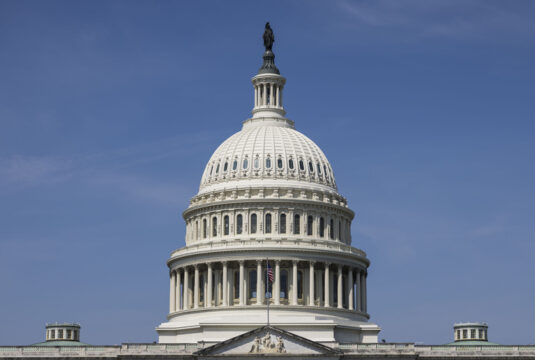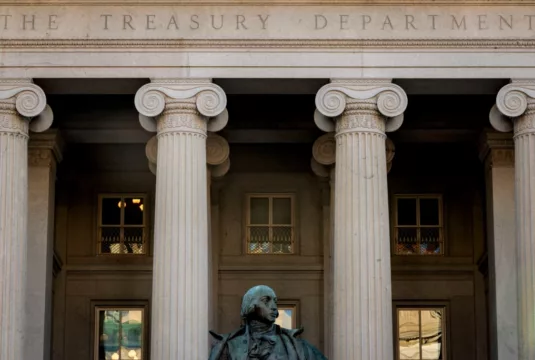Transparency International Releases the 2023 Corruption Perceptions Index
U.S. score stagnates even as U.S. seen as global leader on judicial independenc
A statement from Transparency International U.S.
January 30, 2024
Washington, D.C., Berlin – The 2023 Corruption Perceptions Index (CPI), released today by Transparency International, scored the U.S. a 69 out of 100 for the second year in a row, marking a period of stagnation in the country’s ongoing struggle against corruption. The U.S.’s score is only a marginal improvement from its historic low of 67 in both 2020 and 2021.
The CPI is the most widely used global corruption ranking in the world. The CPI ranks 180 countries and territories by their perceived levels of public sector corruption, and considers factors such as bribery, diversion of public funds, prosecution of corrupt officials, and the use of public office for private gain. The scale runs from 0 (highly corrupt) to 100 (very clean).
“Despite important strides taken by this Congress and this Administration to combat transnational corruption, it is clear more needs to be done to curtail corruption in the U.S. As the world’s leading economy and a major democracy, we should strive for governance and transparency ratings that reflect our global standing,” said Gary Kalman, Executive Director of Transparency International U.S. (TI US).
This year’s theme focused on the independence of judiciaries. For the U.S., the report noted concerns, but also listed important indicators of independence:
[W]eak ethics rules for the U.S. Supreme Court raised serious questions of judicial integrity, but the U.S. federal and state judiciaries largely continue to function with appropriate independence, free from executive and legislative interference. Attacks on the independence of the U.S. federal and state judiciaries have largely failed, and cases against politically connected individuals have proceeded without effective interference. For example, credible legal cases against a former U.S. president and against the current President’s son are moving forward through appropriate and independent judicial channels.
“While there is plenty to critique, the U.S. has one of the most robust and impartial justice systems in the world,” said Kalman.
The stagnant U.S. score reflects a continuing struggle for progress on anti-corruption measures that can protect our democratic processes and institutions.
“More than in any other major developed country in the world, people in the U.S. believe that the wealthy buy elections,” said Scott Greytak, TI US’s Advocacy Director. “The Biden Administration has an opportunity, and an obligation, to do everything it can via executive order to prevent corruption and build public confidence that American democracy can deliver.” TI US recently helped draft a coalition letter calling on President Biden to issue a suite of pro-democracy executive orders.
CPI global highlights
62 countries experienced significant changes since 2012. The average score was 43, with more than 2/3 of countries scoring below 50. From 2012 to 2023, 28 countries improved, with Uzbekistan experiencing the largest gain (+15), and 34 countries declined, with the largest drop in Turkey (-11).
The top 5 countries were Denmark, leading for its sixth year in a row (90), Finland (87), New Zealand (85), Norway (84), and Singapore (83). The bottom 5 countries were Somalia (11), Venezuela (13), Syria (13), South Sudan (13), and Yemen (16).
Trouble at the Top
The CPI measures perceptions of domestic corruption. Advanced economies and Western democracies generally are among the highest-scoring countries by this metric. We also recognize that some of these countries, including the U.S., house global financial centers and serve as facilitators of transnational corruption. The good news is that recent laws and policies passed by Congress and implemented by the Administration are moving the U.S. to more positively engage in countering transnational corruption. In just the last two months:
- President Biden, on December 22, signed into law the Foreign Extortion Prevention Act, the most consequential anti-foreign-bribery law in nearly half a century.
- In early January, the U.S. Treasury Department began its implementation of the 2021 Corporate Transparency Act, which addresses the abuse of anonymous shell companies that are used to hide and launder the proceeds of illicit enterprises.
In addition, the U.S. Treasury Department has moved forward on developing anti-money laundering rules for both the real estate and private investment sectors.
“More than half of all transnational financial transactions are made using U.S. dollars. The implementation of these laws will have a truly global impact,” said Kalman.
Still, more needs to be done before the U.S. can shed the label of a leading global facilitator of corrupt finance. “There is bipartisan legislation to extend our anti-money laundering laws to the lawyers, accountants and corporate service providers who serve as gatekeepers to our financial system,” said Greytak. “Covering these enablers of illicit investment in the U.S. is the single most significant anti-money laundering policy reform facing Congress.”
###
TI US is part of the world’s largest coalition against corruption. In collaboration with national chapters in more than 100 countries, through research, policy development, and advocacy, we are leading the fight to turn our vision of a world free from corruption into reality.
Related Resources
- Read the 2023 CPI
- Read The ABCs of the CPI: How the Corruption Perceptions Index is calculated
- Read TI US’s factsheet on the Foreign Extortion Prevention Act
- Read TI US’s factsheet on the ENABLERS Act
Media Contact
Annalise Burkhart, Transparency International U.S.
Email: media-us@us.transparency.org
Twitter: @TransparencyUSA





